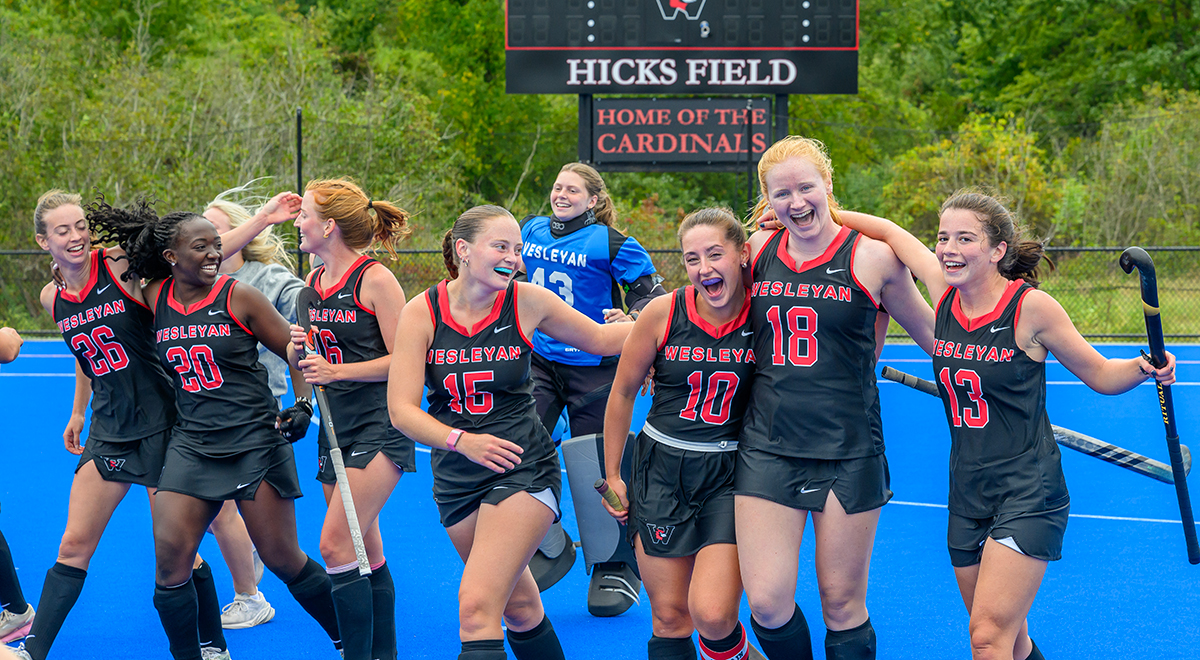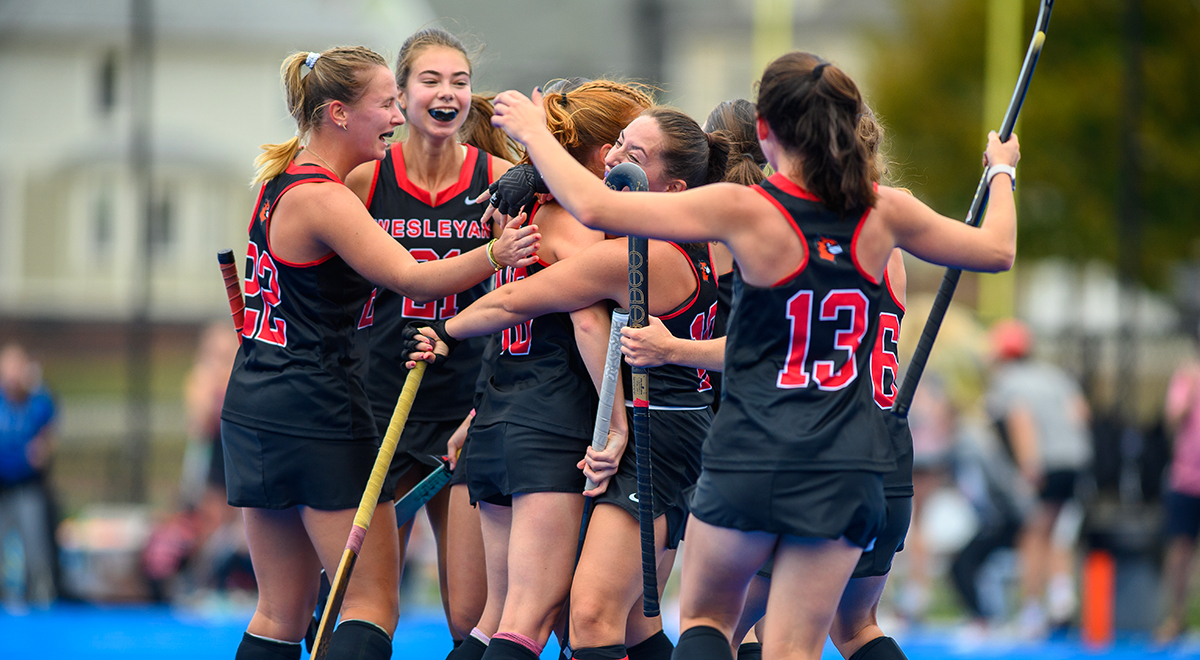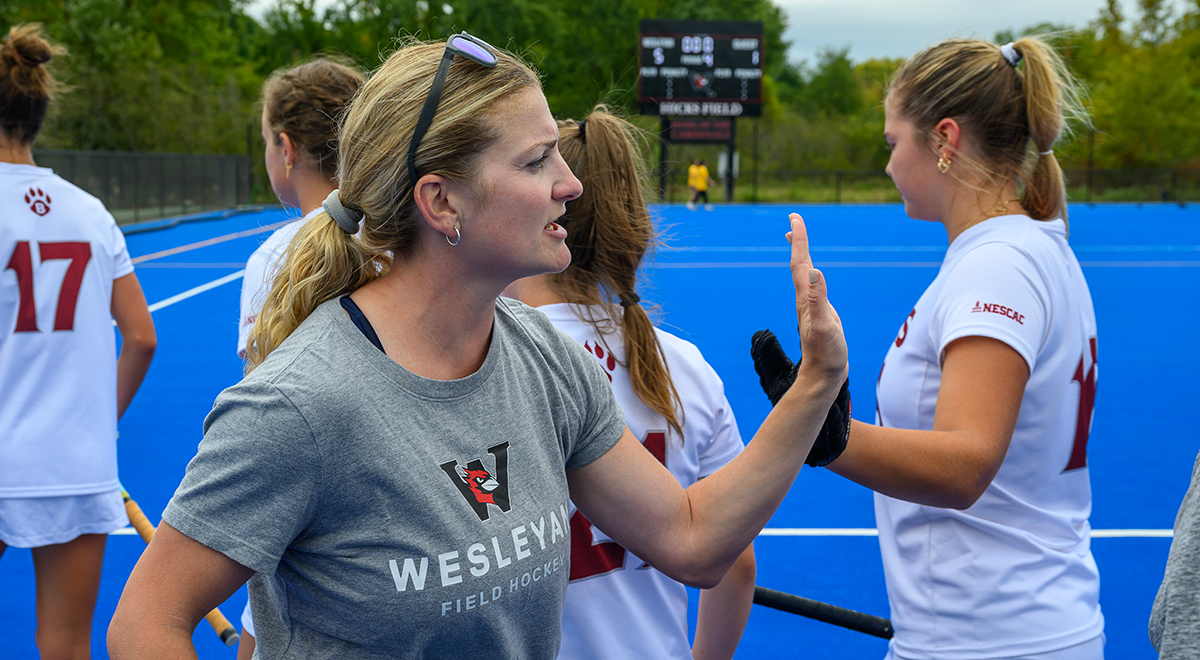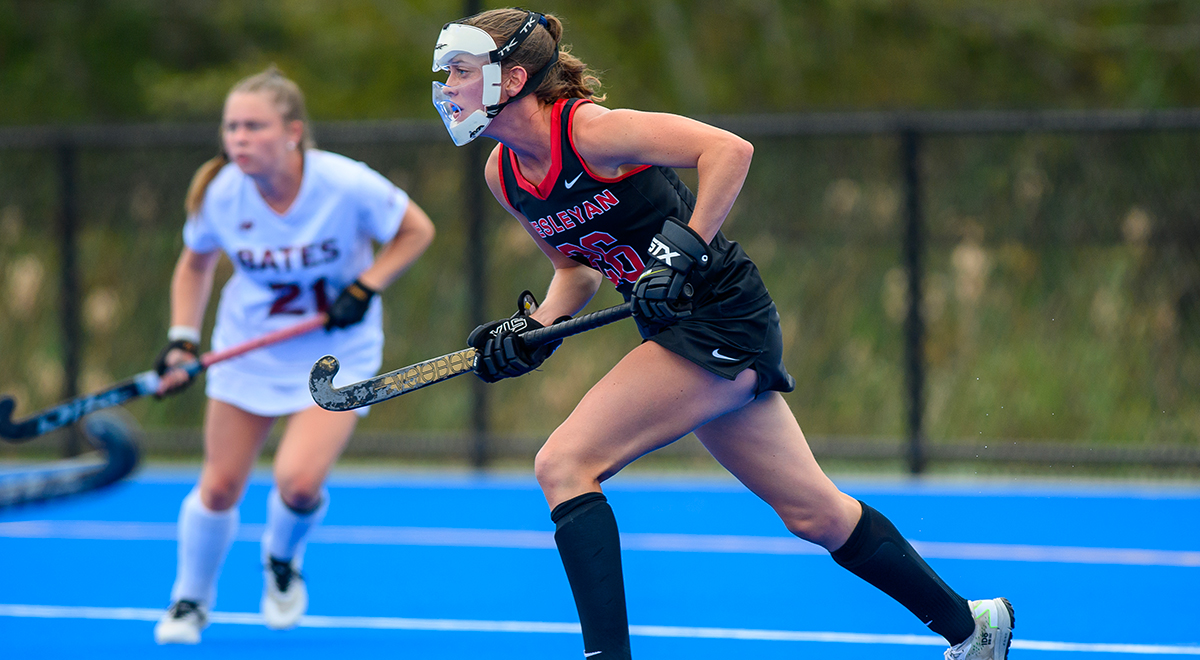Carbon-Zero Field Hockey Turf Unveiled at New Hicks Field

The Wesleyan Field Hockey team has a new home at Hicks Field, officially named at a Sept. 21 ceremony. This new field also has a new type of AstroTurf called Poligras Paris GT zero, which is the first carbon-zero hockey turf developed worldwide.
“Playing on Hicks field has been surreal, a dream come true,” said Christine Kemp, field hockey head coach and assistant strength and conditioning coach. “We play faster, smoother, and more skilled field hockey than ever before. It’s been incredible to see our players take such big steps in elevating the level of play, individually and as a team. It feels like a gate of opportunities has been opened for us.”
The Cardinals field hockey team were one of the first U.S. university teams to play on this special turf, debuting the turf at their first home game in a win over Western New England on Sept. 11. Wesleyan is the first Connecticut university to use this environmentally conscious material for an athletic field.
The new blue turf, which debuted at the 2024 Paris Olympics, is made of fibers that are 80 percent sugarcane and will save 73 tons of carbon dioxide per year compared to conventional turf fields. Normal turf fields require regular irrigation, but Poligraf Paris GT zero utilizes a new friction-reducing, filament-free technology that allows the natural moisture in the air to suffice on most days.
“I am thrilled to be able to contribute to the environment in this way, while still getting to play at a really high level,” Kemp said.

The AstroTurf surface was laid this summer at a field behind Citrin Field, according to Alan Rubacha, associate vice president of facilities. A nearby grass field is also being renovated as a part of the project and will be playable in Spring 2025, he said. The project is possible due to generous donations from Wesleyan alumni and parent donors, including Peter Hicks ’72 and Jeff Hicks ’67.
“We put down the absolute highest-quality AstroTurf that’s available,” said the Frank V. Sica Director of Athletics and Chair of Physical Education Mike Whalen. Alongside the environmental impact, the new turf will significantly alter the speed of play and potentially the future of Wesleyan’s burgeoning field hockey program, Kemp said. Wesleyan is now one of eight members of the 11-team NESCAC conference with an AstroTurf field.
Since there will be no filament on this field—most AstroTurf fields require small pellets within the field fibers—the speed of play will quicken substantially. “It gives us a chance against these schools that are playing and practicing at a high level, day-in-and-day-out, year-in-and-year-out,” Kemp said. “It quite literally, and figuratively, levels the playing field.”

This surface is already making an impact on the speed of play, as the Cardinals had its highest single game shot total at home since 2022 at their home opener. They outshot the Golden Bears 26 to 9 en route to a 5-2 win. Annabel Cincotta ’26 was the first ever goal scorer at Hicks Field—she scored a backhanded shot on a deflected pass from Georgia Adams ’26 in the first quarter—and she was one of four different goal-scorers on that day. The Cardinals followed it up with a convincing 5-1 win over No. 8 Bates on Sept. 21, the program’s first win over the Bobcats since 2014.
“I think our team play is going to be better suited for the Astro because we’re such a passing team,” Field Hockey Co-Captain Kenzie Kelly ’25 said. “It’s really difficult to compete with the highest teams in the NESCAC when they’re playing on a completely different surface from us.”

Kemp expects it will positively impact recruiting, too. She said there have been times since she was named head coach in 2019 that potential recruits turned down the program due to its playing surface. Now on recruiting visits, she said recruits’ eyes often light up when she mentions the incoming field. “There is a noticeable difference in the excitement over it, and I do predict that it will expand our recruiting pool,” she said.
The program took a step forward in 2023. Kemp’s Cardinals finished the year 9-7—five more wins than in 2022—with four wins over top 20 programs in DIII, including an overtime win over No. 5 Tufts in October 2023. Kemp hopes the new turf will aid their upward momentum and become a factor in how other teams approach playing against the Cardinals.
“I like the idea of us having a distinctive home turf that visiting teams have to dread going to,” Kelly said.

